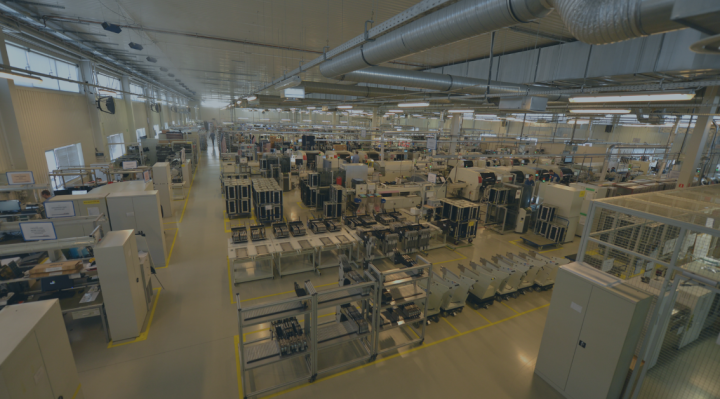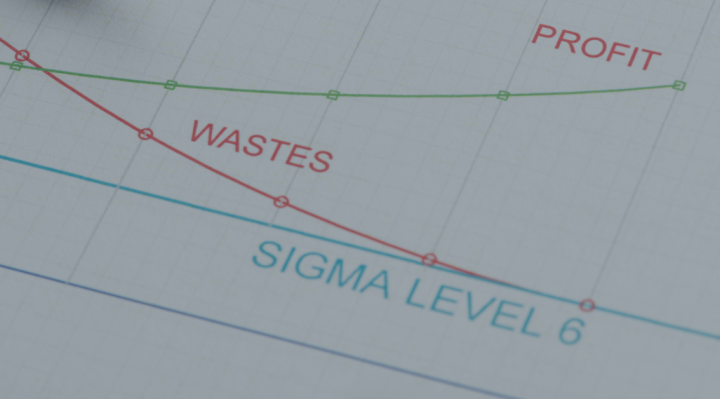In the selection process of an EMS provider you should consider different aspects of the functioning of a given company. Below we present a list of 4 key areas that you should focus on in the verification process of a potential contractor.
1.Technical and engineering infrastructure
Due to the fact that changes in the technological industry take place very quickly, an EMS provider should be always up to date. Competent technical staff is of great value in this case as well as modern equipment, which in the area of electronics manufacturing includes a high-mix SMT lines electronics assembly line, coating and potting applications, testing and inspection competences (X-Ray, AOI, ICT, Environmental Testing), lines and mounting sockets tailored to particular projects (PCBA assembly and final assembly).
What is more, it is crucial to be guaranteed engineering support at each stage of the product life-cycle. You should verify if your contractor provides you with the complex support – from cooperation at a prototype stage through bills of materials analysis and product evaluation to assistance in product certification. Other key elements in this area are functional test designing and environmental test performing that are necessary to ensure your products are failure-free and reliable.
2. Manufacturing management approach
How should you understand the information that an enterprise is managed according to the Lean methodology? In short, Lean Manufacturing is focused on creating the value for the customer while maintaining low production costs and reducing unnecessary operations. Cooperating with the provider who follows this approach, you can expect that manufacturing processes are being continuously improved, the quality is maintained on a high level and deliveries are made on time. That is why, your future business partner should be able to present their achievements in the lean production management. Moreover, in case of Lean Manufacturing, a well-developed IT system for manufacturing management is indispensable as it facilitates not only gathering of historical data, but also online supervision and real-time process management. These operations enable undertaking preventive actions if necessary.
In this regard you should also remember that internal processes of a reliable provider should be organised in the way that enables your maximum time and personnel efficiency and is oriented on cost reduction (both in the area of manufacturing and finding new sources of material deliveries).
Another matter concerns the quality standards which nowadays form the basis for companies within the electronics manufacturing industry. The Quality Management System ISO 9001 and the Environment Management System ISO 14001 determine objectively capabilities of an entity. For the medical industry of high importance are such certificates as, e.g. ISO 13845. Besides, your future EMS partner should not only be capable of manufacturing products according to IPC standard Class 2 & Class 3 requirements (i.e. key manufacturing standards for the electronics manufacturing industry), but also it should comply with individual quality requirements which you, as a customer, determine. Additionally, you should verify if quality tools such as PFMEA, PPAP, Control Plan, 8D Methodology, 5S, CTQ, TPM, Value Stream Mapping, Poka-Yoke or Daily Management Boards are applied in the operational work.
3. Supply chain management
A supply chain management strategy should be tailored to every customer and their business objectives. The key factors in this process include an accurate analysis of the market as well as identification and elimination of potential threats. Having in mind an uneven spread of demand over time, long material lead time or delayed deliveries, the EMS provider assists the customer in creation of a business model that could minimize their financial investment in material and organise material distribution in the way enabling realization of unexpected orders.
An optimal supply chain is the one that ensures cost minimisation, reduction of material risk and continuity of supply. Due to the fact that lead time for components in the electronics manufacturing industry stretches often to a few months, it is vital to plan processes and operations precisely and in detail (every item having its own purchasing policy).
In the selection process of your EMS provider you should, therefore, pay attention to their experience in the area of supply chain management. It is also worth verifying if your potential partner operates with the use of advanced IT ERP systems (Enterprise Resource Planning) with an integrated MRP2 (Material Requirements Planning) functionality, as well as if they own a MES system (Manufacturing Execution System) providing traceability capabilities and material management. A high level of automation and integration with production systems is an indication that the company is well organized and focuses on organizational savings.
4. Customer service
Close cooperation of the provider and the customer is necessary to meet their established objectives. That is why every customer should receive dedicated care. Program Manager is a person responsible for leading you through a complete manufacturing process. Product Engineer is involved in the process from the stage of designing. The status of the customer’s manufacturing is supervised by test engineers who undertake actions if it is necessary. Engineers can provide a support to the customer in the process of cost optimization related to material (depends on a design) and new resources. Supply planners take care of timely supplies of material. Finally, quality assurance team supervises the process from the moment material is put in the form to the final product.
Professional customer service depends not only on personnel roles, but also on the general effective organization of your contractor that fulfills its promises, and possesses high technical skills ensuring flexibility and fast reaction to customer’s needs.






